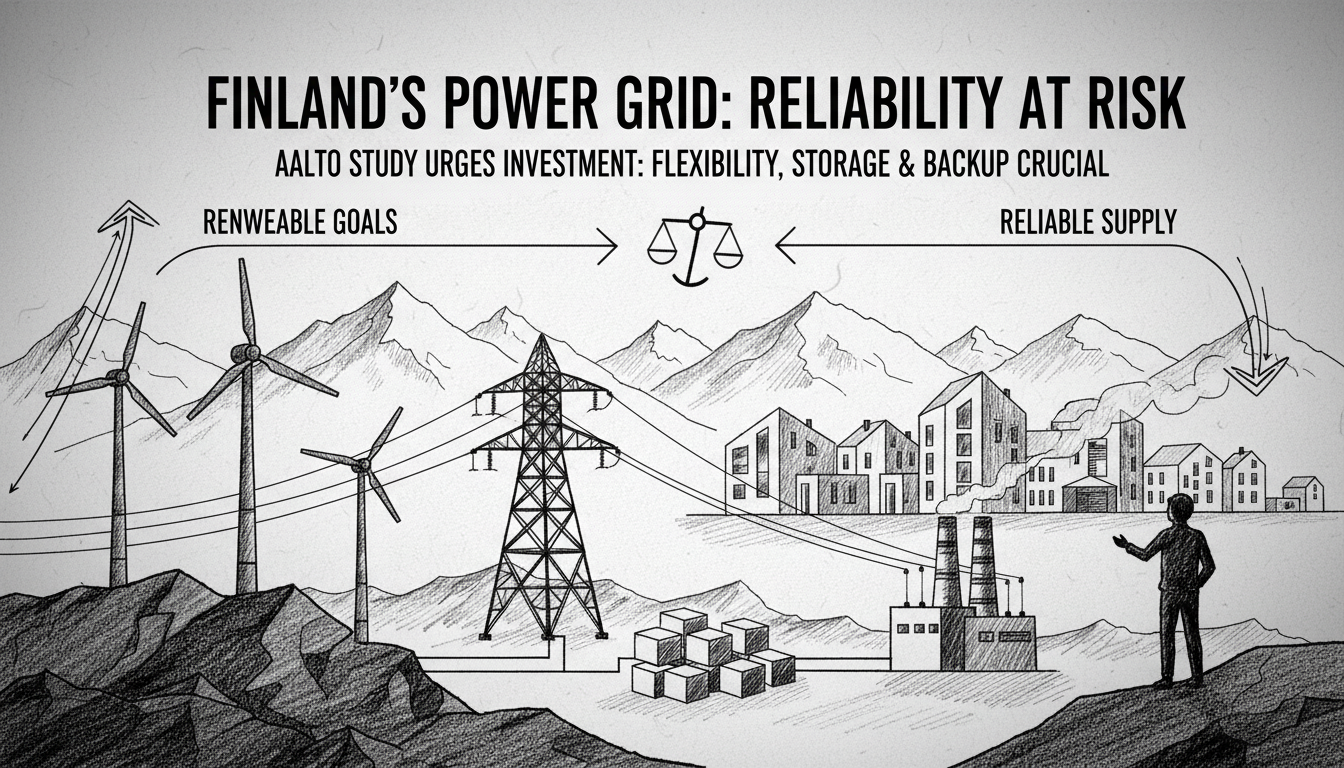A new study from Aalto University reveals Finland's electricity system faces significant reliability risks in coming years. The research shows Finland must invest more in demand management and flexible production to maintain power supply security.
Electricity has always been easily available in Finland, but this could change. The country needs to prepare for potential shortages during the 2030s.
Finland's power grid has historically been very reliable. Unlike Spain and Portugal, which experienced nationwide blackouts last year, Finland has avoided such widespread outages. The system's stability now faces new challenges.
Researchers identify three key solutions: demand flexibility, large-scale battery storage, and gas or multi-fuel power plants. None of these solutions work alone. They must function together to ensure reliable electricity supply.
Lead researcher Dr. Seppo Borenius explains the paradox. The green transition actually needs some fossil fuel backup. This isn't a step backward but rather an insurance policy for energy security.
Solar and wind power alone cannot meet future energy needs. We need energy investments that work when sun and wind are unavailable. Otherwise, we risk undermining the entire green transition foundation.
The problem requires timely action. Large battery storage can only handle demand peaks for a few hours. Delaying solutions accumulates risk.
Electric heating systems can reduce power for a few days but not for multiple consecutive windless weeks. The study's proposal includes limited fossil fuel use as backup power sources.
This doesn't mean transitioning to renewable energy is impossible. Gas and multi-fuel plants would serve as reserve power sources in the background.
Finland's energy situation reflects broader Nordic challenges. The region's push toward renewable energy must balance reliability concerns with environmental goals. Other Nordic countries face similar decisions about maintaining backup power capacity.
The research highlights a critical energy policy dilemma. How do nations maintain electricity reliability while pursuing aggressive renewable energy targets? Finland's experience could inform similar debates across Northern Europe.
Energy experts note that Finland's isolated grid connections complicate matters. Limited cross-border transmission capacity means the country cannot easily import power during shortages. This makes domestic reliability even more crucial.
The study's timing coincides with Europe's broader energy security concerns. Many countries are reevaluating their energy mix following recent supply disruptions and price volatility.
What does this mean for Finnish households and businesses? Potential electricity shortages could affect everything from heating to industrial production. The solutions require substantial investment and careful planning.
The research team emphasizes that their fossil fuel proposal represents a temporary measure. As battery technology improves and renewable storage solutions advance, backup requirements may decrease.
Finland's energy debate now centers on finding the right balance. The country must maintain its reputation for reliable electricity while accelerating its green transition. This challenge will shape energy policy for years to come.

